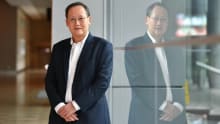Singapore’s workforce has the poorest mental health, job satisfaction, and quality of life in Southeast Asia

The mental health of the workforce has been accentuated by the onset of Covid-19. According to a recent survey, the Singaporean workforce is having the worst mental health in Southeast Asia, with local employees surveyed claiming the lowest levels of engagement, job satisfaction, and overall quality of life.
The findings of the survey highlight that only 57% of Singaporeans rated their mental health to be “good”, “very good” or “excellent”, compared to 68% in Indonesia and 78% in the Philippines. As many as 3,000 employees across Singapore, Indonesia, and the Philippines were surveyed.
While numerous factors have contributed to burnout and fatigue among the workforce - including financial and geopolitical uncertainties, Covid-19, a potential global recession on the horizon - the glamourisation of productivity and the “rise and grind” mentality have taken a toll on the region’s workforce, especially younger employees.
According to the study, the top reasons employees push themselves so hard is the desire to build a better life for themselves and their loved ones (58%), achieving a sense of accomplishment (53%), and earning more income (50%).
Across all 3 countries, 16-24-year-olds tend to be motivated by the “fear of not being able to do as well as my peers”, with 30% in Singapore, 20% in the Philippines, and 11% in Indonesia indicating so. As a result, 50% of employees across the region have reported feeling burnt out from work at least a few times a month, with 41% “often” or “always” feeling as though they cannot stop thinking about work.
Insights from the study show that on average, Singapore employees spend less than or as much time at work as compared to their regional counterparts, but report the lowest levels of engagement and job satisfaction. In Singapore, just 42% of talent reported high engagement at work (having indicated a score of 8 or higher on a scale of 1 to 10), compared to 52% of Indonesian employees and 56% of Filipino employees. At the same time, 26% of Singaporeans employees are dissatisfied with their job, compared to 15% in Indonesia and 17% in the Philippines.
Even more worryingly, half (52%) of Singapore employees report having poor quality of life, compared to 37% and 36% in Indonesia and the Philippines respectively. This also translates into poor sleep, with 30% of Singaporeans admitting to poor sleep quality (having indicated a score of 4 or below on a scale of 0 to 10), compared to 19% of Indonesian employees and 16% of Filipino employees.
Theodoric Chew, Co-founder & CEO of Intellect, said, “In line with the Singapore government’s goal to improve employment support for those with mental health conditions it is necessary for companies to invest in more robust wellbeing initiatives such as coaching to ensure mental resilience of employees.”
“The latest survey sheds light on how opinions toward work have evolved, and how the effects of the pandemic and other global issues, such as inflation and a looming recession, may be weighing on the younger generations. The data highlights just how important it is for employees to be mindful of their work-life balance, and for employers to cultivate positive and balanced working environments,” said Stephen Tracy, COO of Milieu Insight.
Dr Oliver Suendermann, Clinical Director of Intellect, said, “Employees may tie their self-worth and identity to professional achievements, further propagating the glorification of workaholism. An empowered workforce is more likely to realise their full potential at work and bring greater value to their team.”
The survey was conducted by Southeast Asian consumer research company, Milieu Insight, in collaboration with Intellect, this Hustle Culture study surveyed 3,000 employees across Singapore, Indonesia, and the Philippines.
















